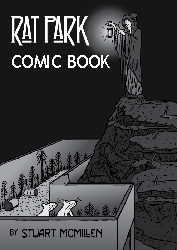Presentation to Leeds and York Partnership, NHS Foundation Trust, March 23 2018
Bruce K. Alexander, Professor Emeritus, Simon Fraser University
Latest revision May 28 2018
We are meeting today amidst a crisis of opioid overdose deaths in the US and Canada. We are all doing our best to end this crisis, but the death toll keeps rising. Historically, the current opioid crisis is not an isolated event, but only the latest tsunami to blow in across a rising global tide of addiction to many drugs and other habits. We are not doing well with the larger problem either.
I believe that I know why we are not doing better. Almost all of our interventions are based, at least partially, on a very old narrative about drugs that has outlived its usefulness, but stubbornly refuses to release its hold on our thinking. I will propose a paradigm shift from this played-out “old story” to a “new story.” I will show at the end of this presentation how the new story can help us to respond better to the current crisis and to the rising tide of addiction to which it belongs. Along the way, I will show why the old story is so very hard to leave behind.
Read more: Treatment for Addiction: Why Aren’t We Doing Better?
Healing Addiction Through Community: A Much Longer Road Than it Seems?
Bruce K. Alexander
Revised Version of Keynote Address at the “Creating Caring Communities” Conference
Selkirk College, May 14, 2015
The winds of change are blowing in the field of addiction. I sense the change in the discourse of the most stimulating scholars and the discussions of the audiences after I give public presentations. Both the moralistic view of addiction as wilful evil and the disease/medical model of addiction have lost much of the impregnable power they once had (Pickard, 2012; Ahmed, Lenoir, & Guillem, 2013; Levy, 2013; Satel & Lilienfeld, 2013; Hall, Carter, & Forlini, 2014). A new understanding is gradually emerging in their place: Addiction is a way that needy people respond to what is missing or traumatic in their own lives and communities (Maté, 2008; Hart, 2013; Peele & Thompson, 2014, esp. pp. 197-200; Lewis, 2015). Along with this understanding comes a much greater emphasis on attempting to establish addicted people in a welcoming community, thereby reducing their need for addictive compensations. This expanding trend is associated with googleable phrases like “building community”, “restoring community”, “recovery houses”, and “support groups”.
Read more: Healing Addiction Through Community: A Much Longer Road Than it Seems?
Curando las adicciones a través de la comunidad: ¿Un camino mucho más largo de lo que parece?
(Spanish, Healing Addiction Through Community: A Much Longer Road Than it Seems?)
Open Spanish translation (.pdf)
Eco-Crisis, Spirituality, and Addiction
Bruce K. Alexander
Professor Emeritus, Simon Fraser University,
Vancouver, BC, Canada
Workshop Presented at Healing Our World and Ourselves Conference
Vero Beach, Florida, February 21, 2014
(I have received expert guidance on this project from several friends and colleagues who are recovering from addictions and also actively involved in environmental or social justice issues. Most of them are members of AA and/or other 12-step groups and are therefore anonymous. They do not all agree with all of the ideas stated here.)
In the twenty-first century, the miracles of modern technology and science are bringing forth a world civilization that encompasses virtually all peoples, cultures, and religions of the planet. This is a wondrous new stage in human progress, but it has brought deadly problems in its train. Right at the head of the deadly train, the new civilization appears to be well on the way to destroying the sustainability of the Earth’s intricate and fragile ecosystems. The ultimate nightmare is before us: Destruction of life itself may turn out to be a side effect of modern, globalized civilization. (McKibben, 2010; Kolbert, 2013).
Read more: Eco-Crisis, Spirituality, and Addiction
Bruce Alexander
Presented (In shortened form) to A Community Aware,
Longhouse Church
Vancouver, September 10 2013
Late in the 19th century, a young Harvard scholar named William James, dreamed that brain science could cure the psychological pain and suffering that he saw all around him, including his own (Richardson, 2007). More broadly, he envisioned brain science as the basis of a new, scientific approach to the entire field of psychology (James, 1890/1950). William James was not alone in these dreams, but was one of a scattered fraternity of brilliant European and American researchers who pursued similar visons (Boring, 1950; E. Taylor, 2011).
William James was much more than a physiological psychologist, however. He was also a member of a brilliantly intellectual, but conflicted family; an encompassing, classical scholar who read the great philosophers in Latin, German, and French; a modern, pragmatic philosopher; and a man of deep personal friendships and universal compassion. His whole family was fervently opposed to slavery and two of his brothers risked their lives to fight it in the American Civil War (Richardson, 2007).
Read more: Recovery from Addiction: The Role of Spirituality and the Planet Earth
The 2008 report of Scotland’s Futures Forum[i] indicates that Scottish policy makers are prepared to move in a new direction, seeking to reduce harms associated with drugs and alcohol, rather than vainly striving to eliminate these substances from the face of the earth.
Read more: Towards Controlling the Drugs and Alcohol Problem in Scotland: Going Up the Down Staircase

